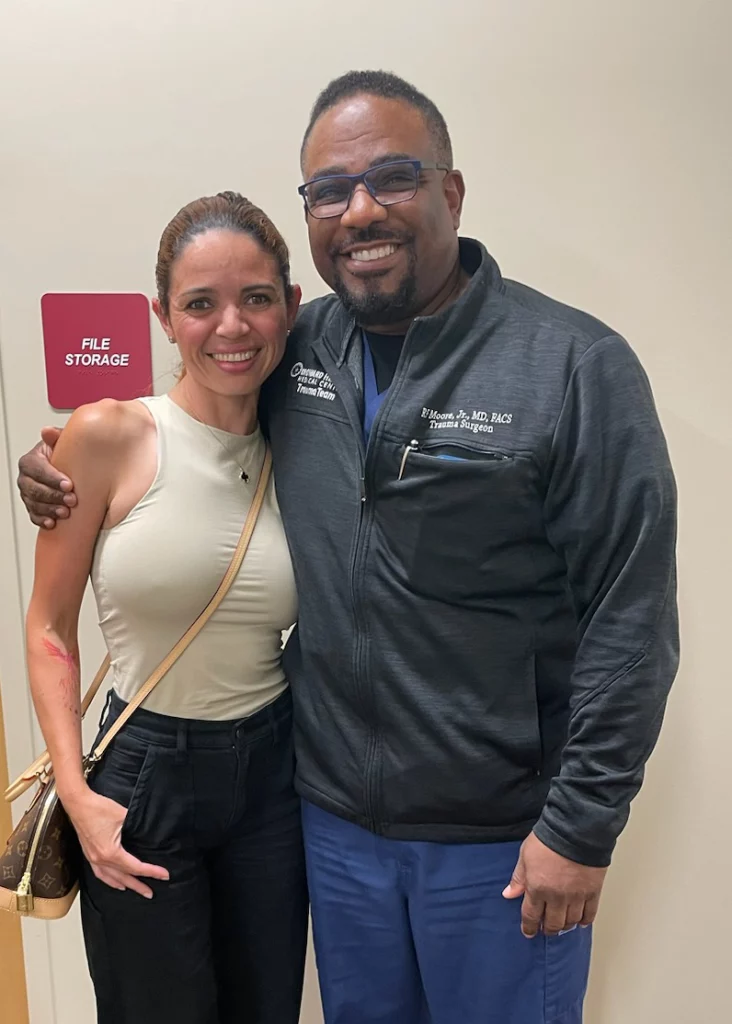Strax Bariatric

Procedures Completed
0
+
Dr. Moore
Dr. Moore is one of South Florida’s premiere general surgeons, with over 20 years of practice in the trauma center he has become recognized by his peers as a leader in this specialized area. He is also world known as one of the premiere bariatric surgeons in the world. Dr. Moore is a celebrated bariatric surgeon and a laparoscopic/robotic specialist and we're glad he is our Gastric sleeve surgeon.
01
The Start
Call now and schedule a consultation with Dr. Moore, he only works by appointment and on certain days.
02
The Consult
You will be analyzed by one of the leading specialist in the world to treat your issues. You and also see your payment options
03
The Surgery
The quick surgery will change you and your loved ones' lives forever. You will set up a follow-up schedule after the surgery.

Alphaeon
Financing Partner

In-House
Financing Partners

America First
Financing Partner

Cherry Finance
Financing Partner
I Feel Amazing
☆☆☆☆☆ 5/5
Dr. Moore has changed my life forever.

Magali Rodriguez
Strax Bariatric Patient
Dr. Moore Patients' Before and After
By consistently following these strategies, you can sustain your weight loss and lead a healthier lifestyle after bariatric surgery.
- Stick to your surgeon’s diet plan: After surgery, you’ll follow a specific dietary progression, from liquids to soft foods to solid foods. Long-term, focus on high-protein, low-carb, low-fat meals.
- Eat small, frequent meals: Your stomach capacity is reduced, so portion control is crucial.
- Avoid high-calorie, high-sugar foods: These can slow weight loss and contribute to weight regain.
- Stay hydrated: Drink plenty of water (but avoid drinking during meals to prevent overfilling your stomach).
- Take vitamins and supplements: Post-surgery, your body may struggle to absorb nutrients, so continue with recommended supplements.
- Start slow and gradually increase activity: Focus on low-impact exercises like walking, swimming, or cycling initially.
- Incorporate strength training: Building muscle helps increase metabolism and maintain muscle mass, which prevents weight regain.
- Set realistic goals: Aim for at least 150 minutes of moderate exercise per week.
- Attend regular check-ups with your healthcare team: They will monitor your progress and help address any nutritional deficiencies or concerns.
- Consider mental health support: Bariatric surgery can bring emotional changes, and support from a therapist or support group can help manage stress, body image issues, and emotional eating.
- Practice mindful eating: Pay attention to hunger cues, eat slowly, and chew thoroughly.
- Manage emotional eating: Learn to recognize triggers for overeating and develop non-food-related coping mechanisms.
- Keep a food journal: Tracking your meals helps ensure you stay on track with your goals.
- Avoid grazing: Eating small amounts throughout the day can lead to weight gain, even with a smaller stomach.
- Steer clear of liquid calories: Sugary drinks, alcohol, and other high-calorie beverages can contribute to weight regain.
- Plan ahead: Prepare meals and snacks in advance to avoid unhealthy choices.
- Connect with others who have had bariatric surgery: Peer support can offer motivation, accountability, and encouragement.
- Participate in online or in-person groups: There are many communities where you can share experiences and advice.

Strax Bariatric
- 4300 N. University Drive
- CALL: (954)749-3040
- info@straxmedspa.com
Our Staff
Our doctors and technicians have over 40 years of experience.
- Phone : (954) 749-3040
- Email : info@straxmedspa.com
- Address : 4300 N. University Dr. Suite A-202 Lauderhill, FL 33351






